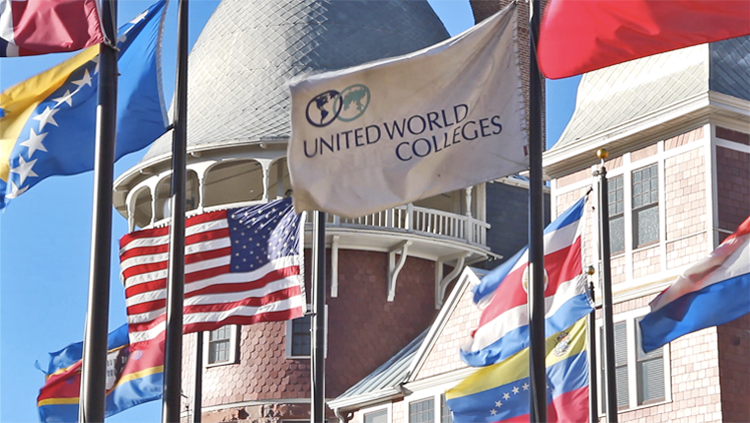I’ve been struggling for a while now on defining what I think ‘being wealthy’ means. So far what I’ve come up with is that ‘being wealthy’ has something to do with embracing two realities we tend to want to avoid: work, and death.
I’ll talk about death later, but for today I think that one of the keys to wealth is enjoying your work.
On the face of it, that’s an obvious statement, since we get paid money to do work, and you need money to get wealthy. Or if not get wealthy, to at least pay your bills to avoid getting poorer.
Dig a bit more, however, and the picture muddies.
What about people who dislike their jobs, but they get paid well to do it? Can they be wealthy? I have an idiosyncratic view on what ‘being wealthy’ means. I’d answer no to that question.
Once upon a time I worked at a well-paid job. I wasn’t particularly happy doing it, but it paid far better than it should have. What kind of simpleton walks away from that situation? I think what I learned, after I walked away, is that there’s no way you can actually ‘be wealthy’ while you work at a job that makes you unhappy.

As the Irish-American poet Macklemore reminds us, “Make the money, don’t let the money make you.”
We may ‘earn’ a lot of money in any given job, but if we are doing work that fundamentally leaves us feeling ill, or bored, or unfulfilled (in my case, a combination of all three) then we’re probably doing the wrong kind of work, regardless of the pay. If you need the money that badly, you’re not wealthy, no matter how fat the payday seems.
On the other hand, if you do work that you would continue to do regardless of what it pays, then I think that’s approaching my definition of ‘being wealthy.’
I’ll be the first to say that “follow your passion” is the theme of every Hollywood movie ever made, and is also terrible advice for people looking to get rich. (Sadly, you are not a unique snowflake either. I’m all about crushing dreams today.)
On the other hand, people who absolutely love their work tend to excel at it, which could maybe in the long run pay off monetarily through excellence, advancement, and longevity on the job.
I have a couple of other thoughts on the link between work and being wealthy.
The Lottery Test
Lotteries are terrible. That giant Powerball lottery two months ago, however, reminded me of the important ‘lottery test’ we should all give ourselves at least once a year.
The lottery test, as maybe you already know, asks us what we would do about our present day job if we won the lottery. Assuming you won the lottery and no longer needed the money, would you make like Johnny Paycheck and say: “Take this job and shove it?”
The lottery test lets you know, every year, whether you’re doing a job that you enjoy. If you would ‘take this job and shove it,’ then you know you’ve got to keep looking further in order to be wealthy, by my definition.
I bought a few tickets to that huge Powerball lottery (Pro Tip: Never buy lottery tickets!) and I literally suffered agita at the thought that I might win. Seriously, I got scared.
Now, obviously, that tells you I’m worse at math than I had previously led you to believe. But it also told me that I’m probably somewhat on the right path professionally. I wouldn’t want to walk away from what I do.
Because anyone who wins the Powerball gets immediately disqualified to do what I’m doing. You can’t be a dispenser of reasonable finance wisdom and simultaneously someone who is outed publically as playing, or worse winning, the lottery. Personally I would never admit to buying a lottery ticket. I would be exposed forever as an idiot and a hypocrite. Also, any recipient of reasonable financial advice I ever gave in the future would immediately respond with “Easy for you to say, wise guy, you won the lottery.”
Inheritance
Speaking of the lottery, what about winning the lottery of birth through inheritance? Can’t we, like nineteenth century English nobility, be wealthy without ever working? The gentlewomen in Jane Austen novels seek suitable marriages in part to avoid the fate of actually having to, you know, work.
Our culture, however, is different when it comes to valuing work. Our heroes are different. We revere Zuckerberg and Gates in part for their wealth, but primarily because they worked hard to create useful software that happened to make their fortunes. We don’t value the heirs to fortunes the same way we honor the original creators of fortunes.
I don’t know if the following is true, but it feels like it might be: Our own appreciation for our money, our ability to ‘feel wealthy,’ depends on working hard to get what we had. It’s not enough to win the lottery of birth, or the actual lottery. We have to work at it to really feel it. But I’m open to being disabused of my assumption. If you’re a lottery winner (either the ticket-buying type or the heir), does it feel the same? Do you feel wealthy enough?
Disregarding the pay
An advantage of having money – inherited, won, or acquired – is that it would allow us to choose whatever work most suits our interests and talents regardless of what it pays. My sense is that it’s the doing of the work – not the having of the money – that supplies meaning to our lives.
Working at something we love while disregarding the pay – I think that’s approaching the definition of wealthy.
A version of this post ran in the San Antonio Express News
Please see related post:
Post read (233) times.


